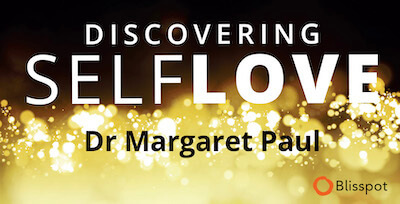Everyone gets angry at times. Just because your partner gets angry, doesn’t mean it’s time to leave the relationship. There is a big difference between someone being angry and someone being abusive.
Hazel asks me:
“At what point do I move on from an angry partner? I’ve taken to heart your advice regarding staying in difficult relationships until MY end of things is healed; however, if I stay until I no longer feel triggered, a complete healing might take the rest of my life! When he yells, I still respond with defensiveness and explanations. This pattern is frustrating, yet reminds me that I still have work to do. BUT I am 58 and also want time to possibly meet someone kinder with whom to spend my later years. Please help!”
There are a number of issues to consider:
- It’s not a matter of staying until you are no longer triggered. You might be triggered by anger your whole life, but getting defensive and explaining is how you are responding to being triggered. The problem with leaving when you are still getting defensive and explaining is that you will take these controlling behaviors with you into your next relationship. Until you can stop and take the sacred pause and then disengage, you have a strong possibility of experiencing the same issue in your next relationship.
- You have no guarantee that your next partner won’t get angry. Most people do get angry at times, and getting defensive and explaining actually feeds another’s anger. Most people who leave without healing their end of the system end up creating the same system in their next relationship. Healing your end of the system means you doing the inner work to learn to deeply value yourself, so that you know that you don’t deserve unloving behavior from your partner. Once you are loving yourself, it will be much easier to no longer defend and explain
- The real issue is whether or not you can love and fully accept your partner, even with his anger. We all have a wounded self and we all need to learn to accept and tolerate each other’s wounded self to stay in a relationship. If you can’t love and accept him, then it might be time to leave.
- If your partner gets physically violent or emotionally abusive with threats and name calling, then it’s time to leave.
Often, one person getting angry is part of a relationship system, with the other person either complying, resisting, withdrawing, defending or explaining. The system will continue as long as both partners continue their end of the system. But if Hazel were to stop her end of the system by taking a breath to give herself a chance to not react, and then lovingly disengaging, she might be very surprised at what happens in her relationship. I’ve seen over and over with my clients how much a relationship can improve when one person changes their end of the dysfunctional system.

Leaving in the hopes of finding another relationship may not be realistic. If you decide to leave, leave because you would rather be alone than be with your partner. Too many people leave hoping for a better relationship, only to discover that they either keep creating the same kind of relationship, or they can’t find another relationship.
The bottom line in staying or leaving is about how you feel about your partner, and whether or not you can accept the anger and other wounded behaviours. Be honest with yourself. If you can’t love and fully accept your partner exactly as he is, and learn to take loving care of yourself in the face of his anger, then it’s likely time to leave.
To learn more about relationships see: Discovering Self-Love










It’s SO TRUE Dr Margaret. We need to own and clear our own patterns of behaviour before we judge another. When we are at peace any inner anger of ours, we are more able to objectively see what is really happening with our partner. Thankyou for sharing this valuable article that talks about an issue that is so common and is so supportive with your insights and wisdom.